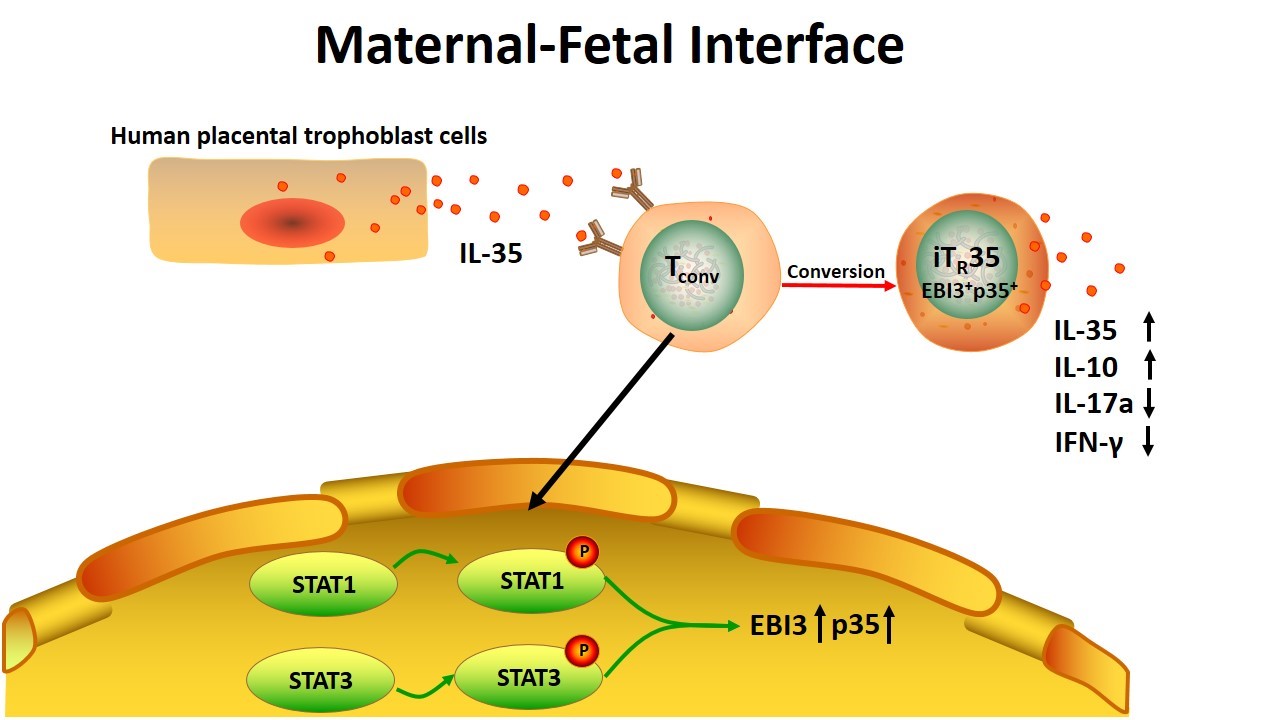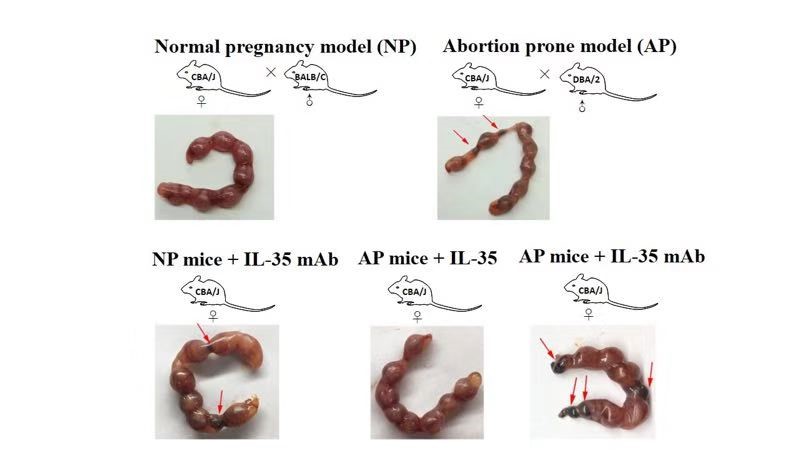Recently, Prof. Mao Haiting's research group at the Department of Clinical Laboratory, the Second Hospital of Shandong University made significant progress in the research of maternal-fetal interface. The research article "Human placental trophoblast cells contribute to maternal-fetal tolerance through expressing IL-35 and mediating iTR35 conversion" was published online in the recent issue of Nature Communications (five-year impact factor 13.811). In this paper, the Second Hospital of Shandong University is the first and corresponding institution. Liu Jia and Hao Shengnan, Ph.D. candidates of Department of Clinical Laboratory, are the co-first authors, and Mao Haiting is the corresponding author.
It is reported that, as the only exception to traditional immunological principle, maternal - fetal immune tolerance has always been the focus of reproductive immunology. Maternal immune system must "recognize" this semi-allogeneic fetus to establish the immune tolerance, which is critical to guarantee successful pregnancy. During pregnancy, cells and cytokines at the maternal-fetal interface must work together to induce immune tolerance. However, the complex regulatory mechanism underlying this unique immune behavior has not been fully explored. Interleukin-35 (IL-35) is an inhibitory cytokine secreted by regulatory T cells (tregs), which inhibits the proliferation of conventional T cells (Tconv)and induces the transformation of Tconv cells into IL-35-dependent regulatory T cells (iTR35).

In the previous research of Professor Mao's team, they found that in addition to Treg, human trophoblast cells in early pregnancy can also express and secrete IL-35. In this study, they further confirmed that IL-35 secreted by trophoblast cells could inhibit the proliferation of Tconv cells and induce the conversion of iTR35 cells, which was conducive to the establishment and maintenance of the local immune tolerance microenvironment in maternal-fetal interface.

Animal experiments showed that compared with normal pregnancy mice, both IL-35 expression level and iTR35 cells proportion in the maternal-fetal interface of immune spontaneous abortion mice were significantly lower,while exogenous IL-35 treatment could induce the conversion of iTR35 cells and prevent the occurrence of spontaneous abortion. Moreover, the inhibitory phenotype, cytokine expression profile and regulatory mechanism of trophoblastic IL-35 induced Tconv cells were also analyzed.
In conclusion, this study reveals the unique mechanism of immune tolerance at maternal-fetal interface. On the other hand, it provides a new target for the prevention and treatment of unexplained habitual abortion, which is of great significance for drug selection and brings new hope to the patients with unexplained habitual addition. This project also provides new ideas for the study of relevant immune tolerance mechanisms in other microenvironments, such as tumor immune microenvironments. At present, Professor Mao's team is further exploring the regulatory effect of IL-35 in tumor microenvironment.
This research is supported by the National Natural Science Foundation and Shandong Province Natural Science Foundation.
The link of this paper: https://www.nature.com/articles/s41467-019-12484-z
Source: the Second Hospital of Shandong University
Written by: liu Jia, Feng Yimin
Edited by: Xie Tingting